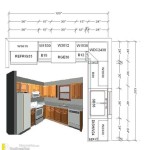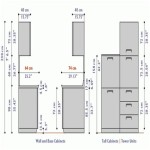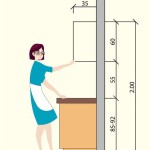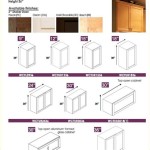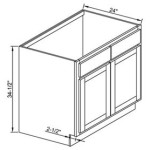Essential Aspects of Kitchen Base Cabinet Widths
Kitchen base cabinets serve as the foundation of your culinary workspace, providing ample storage for cookware, appliances, and other essential items. When designing your kitchen, selecting the right base cabinet widths is crucial to optimize space utilization, functionality, and overall aesthetics. This article delves into the essential aspects of kitchen base cabinet widths, guiding you through the factors to consider and providing valuable tips for making informed decisions.
Factors to Consider
Various factors influence the appropriate widths for your kitchen base cabinets. These include:
- Kitchen Size: Larger kitchens allow for more generous cabinet widths, while smaller spaces may require narrower options.
- Appliance Size: Consider the dimensions of your appliances, such as the refrigerator, dishwasher, and stove, to ensure adequate cabinet space around them.
- Storage Needs: Assess your storage requirements. Larger cookware and bulky items may necessitate wider cabinets.
- Work Triangle: The work triangle refers to the imaginary triangle formed by the refrigerator, sink, and stove. Maintaining a comfortable distance between these points influences cabinet widths.
- Door and Drawer Configuration: The type of doors or drawers you choose will impact cabinet width. Single doors require less space than double doors, while drawers offer easier access.
- Aesthetic Preferences: The overall look and feel of your kitchen can influence cabinet widths. Wider cabinets create a more spacious appearance, while narrower cabinets can convey a more streamlined aesthetic.
Common Cabinet Widths
Base cabinet widths typically range from 9 inches to 48 inches. Here are some common sizes and their applications:
- 9 inches: Suitable for small spaces or as filler cabinets to fill gaps.
- 12 inches: Ideal for storing spices, cookware, or small appliances.
- 15 inches: Typically used for sink bases or under-the-counter microwaves.
- 18 inches: A versatile width commonly used for storage of pots, pans, and other kitchenware.
- 24 inches: A standard width for dishwasher bases and larger storage cabinets.
- 30 inches: Suitable for stove bases and cabinets with multiple drawers or shelves.
- 36 inches: A large width often used for corner cabinets or pantry storage.
- 42 inches: One of the widest cabinet widths, primarily for kitchen islands or large storage areas.
Tips for Selecting Cabinet Widths
To make the best cabinet width decisions for your kitchen, consider the following tips:
- Plan the Layout: Determine the overall kitchen layout before selecting cabinet widths to ensure proper spacing and functionality.
- Measure Appliances: Accurately measure your appliances to ensure they fit comfortably within the selected cabinet widths.
- Consider Door and Drawer Configurations: Decide on the types of doors or drawers you want to use and factor in their respective widths.
- Think About Aesthetics: Balance the visual appeal of your kitchen with the functionality of the cabinet widths.
- Consult a Professional: If you're unsure about the appropriate cabinet widths, consult a kitchen designer or cabinet specialist for guidance.
By carefully considering the essential aspects of kitchen base cabinet widths, you can create a functional, visually appealing, and highly customized culinary workspace that meets your specific needs and preferences.

Base Cabinet Size Chart Builders Surplus

Kitchen Base Cabinet Size Chart Builders Surplus Sizes Cabinets Drawers

Kitchen Sink Base Cabinet Everything You Need To Know

Kitchen Cabinet Dimensions Size Guide

Kitchen Base Cabinets

Woodcraft Custom Kitchen Cabinet Measurements

Standard Kitchen Cabinet Sizes And Dimensions Guide

Kitchen Cabinet Sizes What Are Standard Dimensions Of Cabinets

Common Corner Cabinet Types And Ideas Superior Cabinets
Guide To Kitchen Cabinet Sizes And Dimensions
Related Posts


